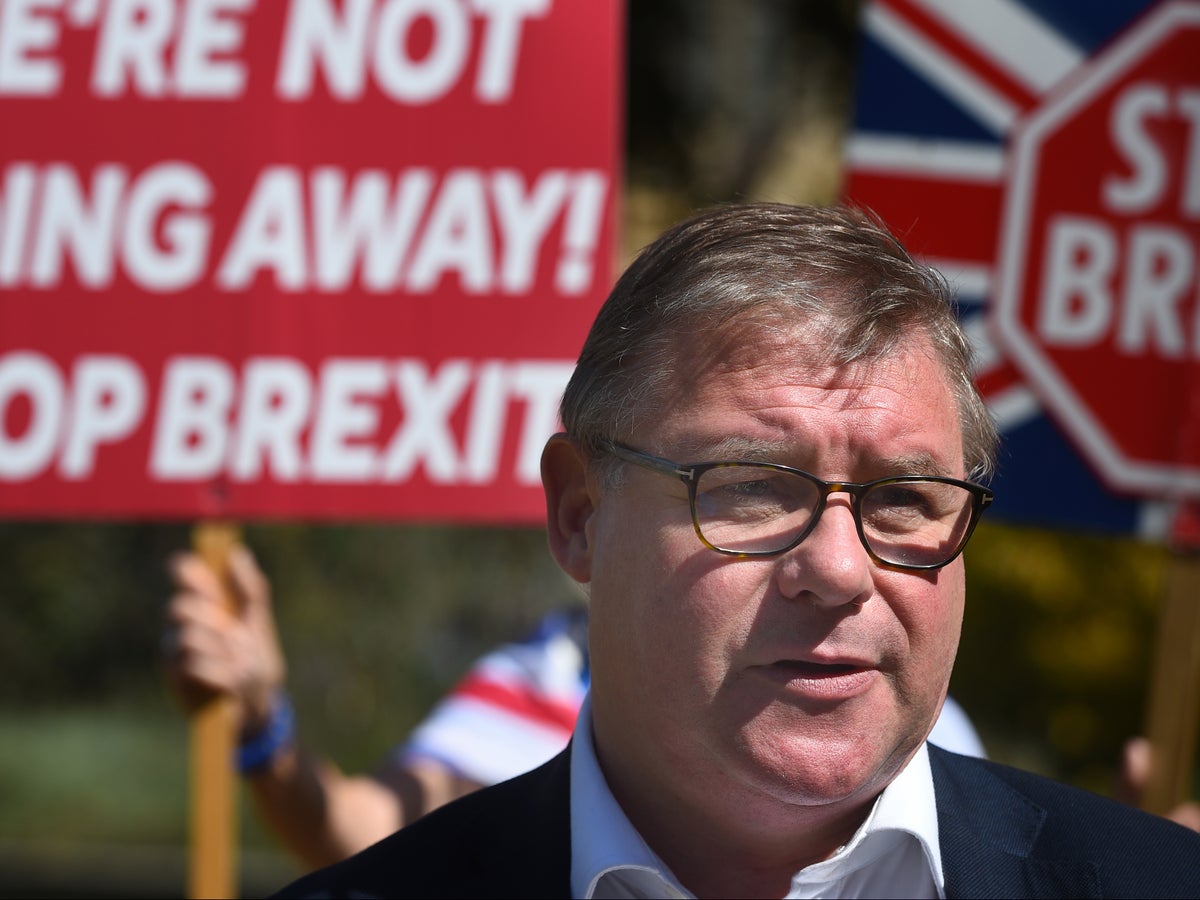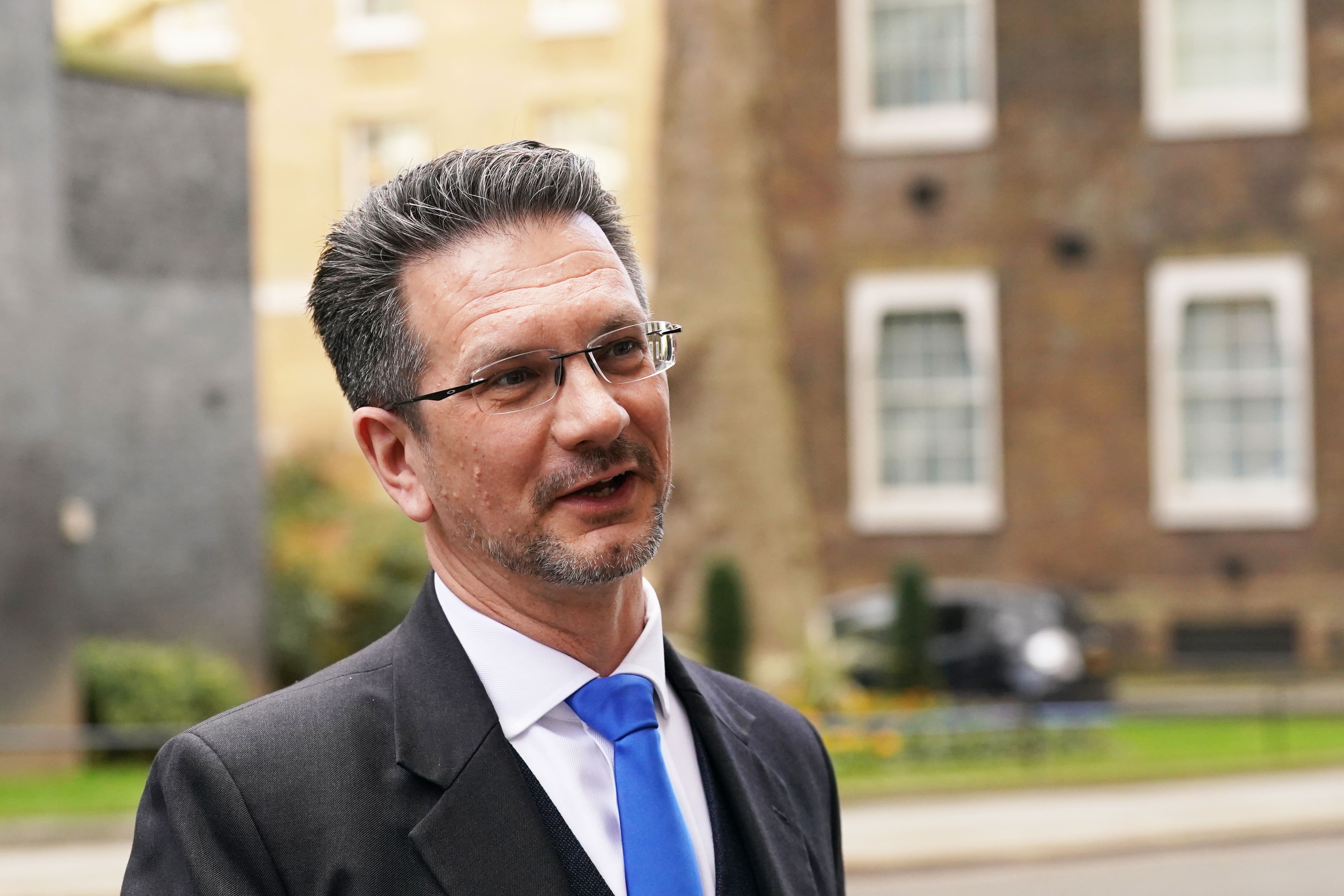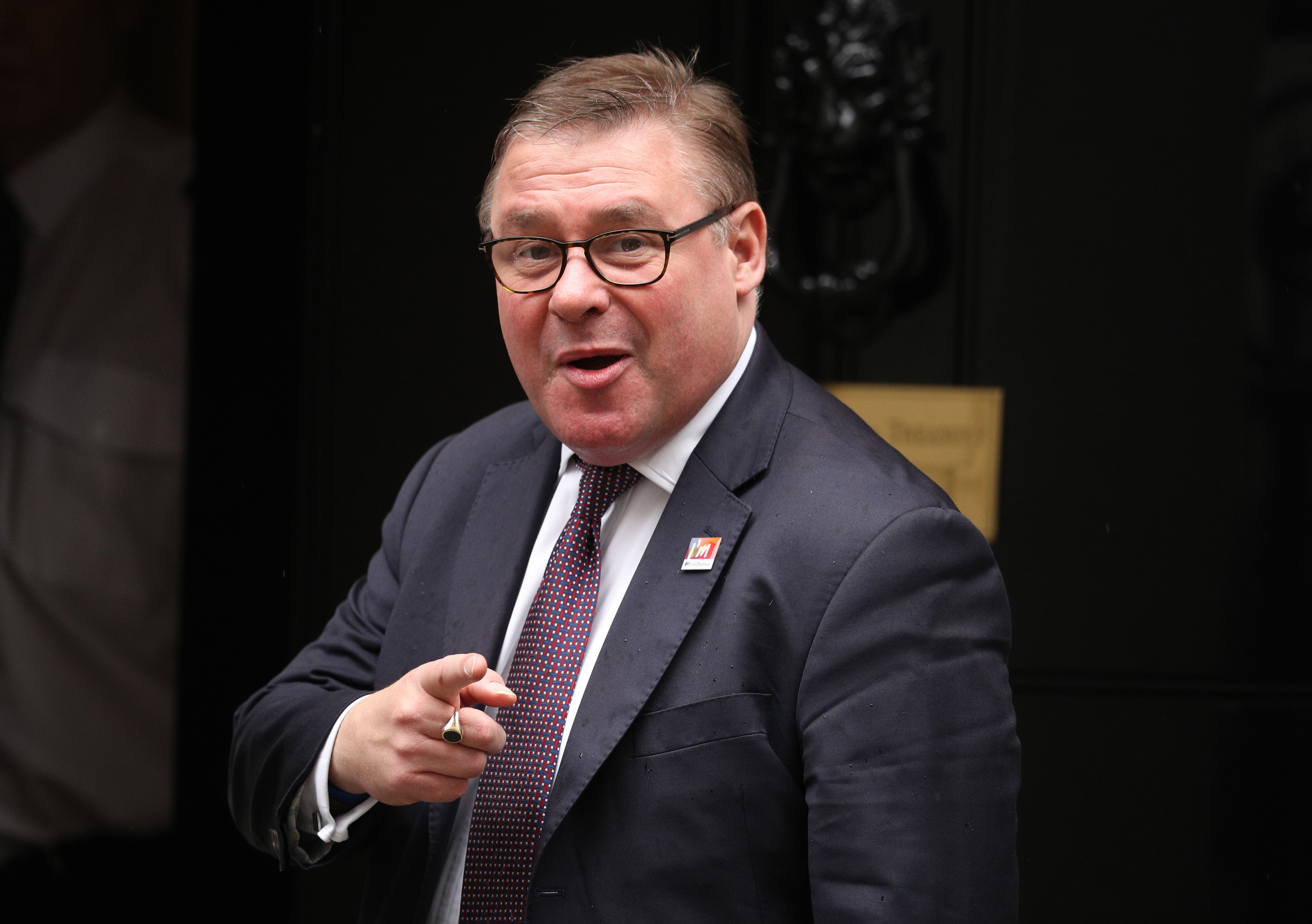
Boris Johnson’s efforts to undermine a key part of Rishi Sunak’s post-Brexit agreement with the EU ended in abject failure today as a vote passed in the Commons by a mammoth majority of 486.
Just 22 Conservatives voted against Mr Sunak’s compromise to end the deadlock on the Northern Ireland Protocol in a blow to the former prime minister’s authority.
Earlier today, Mr Johnson announced that he would join the DUP in rejecting the so-called “Stormont brake”, describing Mr Sunak’s deal as “unacceptable”.
But in a huge relief for Mr Sunak, MPs voted in favour of the Stormont brake by an overwhelming 515 to 29, meaning the government did not have to rely on Labour votes.
The DUP voted against the deal and the European Research Group (ERG) of Tory Brexiteers had “strongly recommended” its members oppose the Windsor deal.
Mr Johnson was joined by former Tory leaders Liz Truss and Iain Duncan Smith in voting against the deal struck by Mr Sunak and EU Commission president Ursula von der Leyen.
Loyal Johnson allies Priti Patel, Jacob Rees-Mogg, Jonathan Gullis and Jacob Berry joined Truss loyalist Simon Clarke and more than a dozen hardliner ERG members – including David Jones, William Cash, Peter Bone and John Redwood – in voting against the deal.
In blue-on-blue Brexiteer infighting on Wednesday, Northern Ireland minister Steve Baker attacked Mr Johnson’s opposition and said he risked looking like a “pound shop Nigel Farage”.
Mr Baker – a former senior figure in the ERG – was said to have been kicked out of the Brexiteer group’s WhatsApp group over the insult on Wednesday.
Mr Farage later tweeted: “You give Steve Baker a government job and he stops being a Brexiteer. What a fraud this man is.”
Joking about the row, Mr Rees-Mogg told the Commons: “I would take that as a great compliment. I would like to be the Woolworths of Nigel Farages.”

Earlier in the Commons, Mr Baker pleaded with DUP leader Sir Jeffrey Donaldson to restore powersharing in Belfast. “He knows exactly what he and his colleagues need to do to help me to serve him … and that is of course to restore the devolved institutions.”
But Sir Jeffrey made clear that his party will not return to the Northern Ireland Assembly in their continuing protest against post-Brexit trading arrangements.
“I have consistently indicated that fundamental problems remain, notwithstanding progress made,” he tweeted. “Consequently, there is not a sustainable basis at this stage to enable us to restore Stormont.”
Sinn Fein leader Michelle O’Neill called for the DUP to end the blockade of Stormont and return to devolved government. “The public have been punished for long enough by this futile and shameful DUP blockade,” she said.
ERG chair Mark Francois said 30 Tory MPs had attended the group’s pre-vote meeting. Mr Francois said the Sunak deal was “rushed and over-sold” and said: “The fact that the DUP has come out very firmly against it means that the deal has not gone far enough.”

The Stormont brake would allow a minority of politicians at the Northern Ireland Assembly to flag concerns about new EU laws in Northern Ireland, a move that could see the UK government veto their introduction.
While the vote on the Stormont brake is only one part of the PM’s agreement with Brussels, it is being read by No 10 as parliament having its say over the entire pact.
In a statement, Mr Johnson claimed Mr Sunak’s arrangements would mean either that Northern Ireland “remained captured by the EU legal order” or the whole of the UK was unable to diverge and take advantage of Brexit. “That is not acceptable,” he said.
Ms Truss is understood to believe the new pact does not “satisfactorily resolve the issues” and “almost fatally impinges” on the UK’s ability to diverge EU regulations.
Urging Tory rebels and DUP to accept the deal is a decent compromise, Northern Ireland secretary Chris Heaton-Harris described the Stormont brake as a “robust change that gives the UK a veto over dynamic alignment with EU rules”.
Mr Francois insisted in the Commons that the Stormont brake was not a “veto” but a “route to arbitration” with the EU if there is a disagreement over goods rules.
Mr Heaton-Harris – his former ally in the ERG – replied: “One, it is a veto. Two, it is a route to arbitration. And three, it removes any element of the ECJ [European Court of Justice] being relevant in this decision.
The Brexiteer cabinet minister added: “So I think we have actually delivered on some of the things that he and I have campaigned on over the years.”
Despite DUP please for further “reworking”, the government has previously said that the framework will not be renegotiated with the EU. Foreign secretary James Cleverly is set to formally adopt the Windsor Framework at a meeting with EU’s Maros Sefcovic on Friday.







